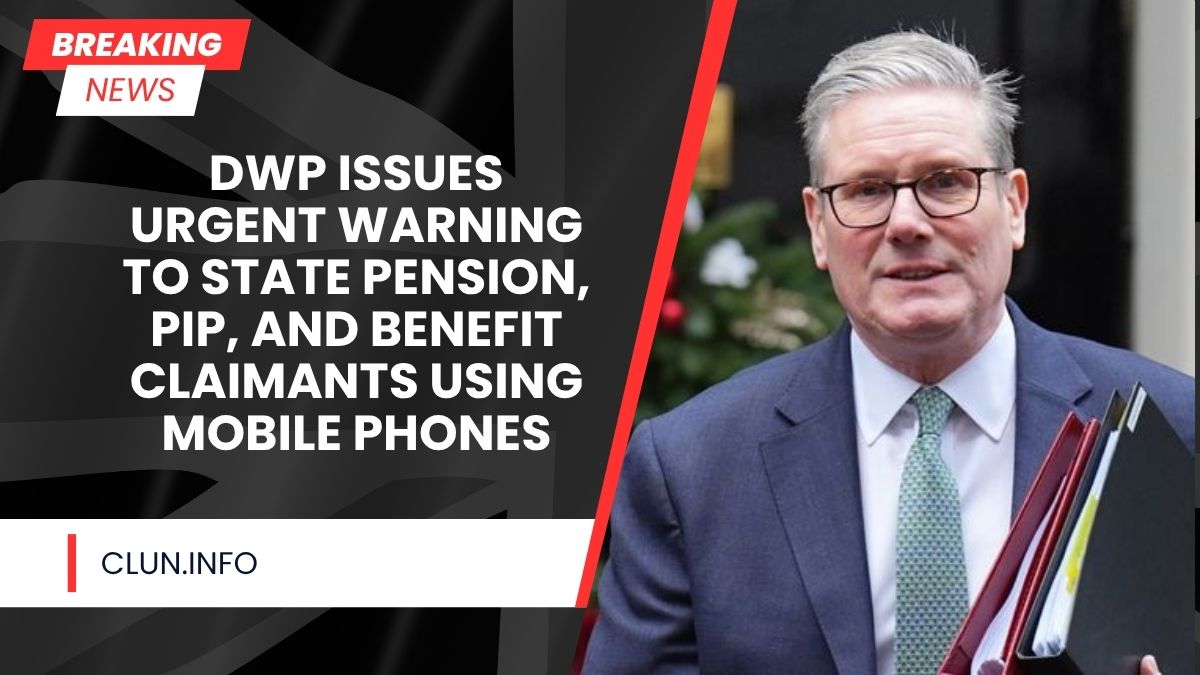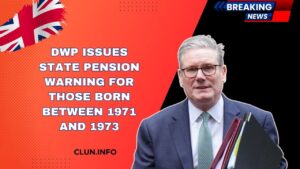The Department for Work and Pensions (DWP) has issued a crucial alert to millions of benefit recipients across Great Britain, cautioning them about deceptive text messages from criminals attempting to steal personal and financial information.
Overview of Benefit Recipients in the UK
Currently, there are 23.7 million people in Great Britain who receive at least one form of financial support from the DWP.
These benefits include State Pension, Universal Credit, Personal Independence Payment (PIP), Attendance Allowance, and Jobseeker’s Allowance (JSA).
With such a large number of recipients, the DWP is particularly concerned about the growing threat of scam text messages targeting these individuals.
The DWP’s Public Warning
In official posts shared on social media platforms like X and Facebook, the DWP warned:
“Be aware of scam text messages claiming to be from @dwpgovuk. Always be cautious of links and never share personal or financial details. Only engage with trusted official sources.”
The DWP further encouraged anyone who receives a suspicious message to report it on GOV.UK by searching for “avoid and report internet scams and phishing.”
The Rise of Impersonation Scams
Many online criminals are attempting to take advantage of the ongoing cost of living crisis by impersonating official government entities such as the DWP or HM Revenue and Customs (HMRC).
These fraudsters often use impersonation scams to dupe individuals into divulging sensitive information.
In recent instances, fraudulent texts have falsely claimed to offer “unclaimed cost of living payments” or the Warm Home Discount.
DWP’s Warning About Winter Fuel Payments
Another point of concern for the DWP is the Winter Fuel Payments, which are automatically issued every November or December. The DWP emphasized that no one needs to apply for these payments.
Scammers have been sending out messages with direct links to apply for these funds, something the DWP never does. Universal Credit claimants will typically be contacted by their Work Coach through their online journal.
How to Verify Suspicious Communications
If you receive a text and are uncertain whether it is legitimate, the DWP advises contacting the relevant government agency—whether it’s the Scottish Government, Social Security Scotland, or HM Revenue and Customs—directly to verify the communication.
Simple Steps to Protect Yourself from Scammers
Here are some essential actions to help you avoid falling victim to scams:
1. Never Share Personal or Financial Information
- Personal and financial information should never be shared with anyone unless you’re certain of the recipient’s identity. This includes sensitive details such as your banking information, PIN, and passwords.
2. Monitor Your Bank Statements
- Regularly check your bank statements for any unfamiliar transactions. If you notice anything suspicious, immediately contact your bank to block your card and report the fraud.
3. Keep a Close Eye on Your Cards
- If you lose your bank card or suspect it has been stolen, contact your bank right away to freeze it. Many banks offer app-based solutions that allow you to freeze your card instantly.
4. Be Cautious of Suspicious Emails or Texts
- Never respond to text messages or emails that request personal information or seem suspicious. If the grammar is off or the message seems unusual, it’s likely a phishing scam.
5. Avoid Clicking on Suspicious Links
- Do not click on any links in messages or emails if you aren’t certain of their source. Similarly, avoid downloading files sent via email or text. Always have antivirus software installed to detect potential threats.
The DWP’s warning is a vital reminder for everyone receiving benefits to remain vigilant about potential scams. As criminals increasingly impersonate trusted government bodies to steal personal and financial details, it’s essential to be proactive in protecting yourself.
By following the simple steps outlined above, you can significantly reduce the risk of falling victim to these scams.
FAQs
How can I identify a scam text from the DWP?
Scam texts often contain links asking you to provide personal or financial information. The DWP will never ask you for such details via text messages.
What should I do if I receive a suspicious message from the DWP?
You should report it immediately on GOV.UK by searching for “avoid and report internet scams and phishing” or contact the relevant government agency.
How can I protect myself from scams?
Be cautious about sharing sensitive information, regularly monitor your bank statements, and avoid clicking on suspicious links in emails or text messages. Always contact the official sources directly to verify communications.




